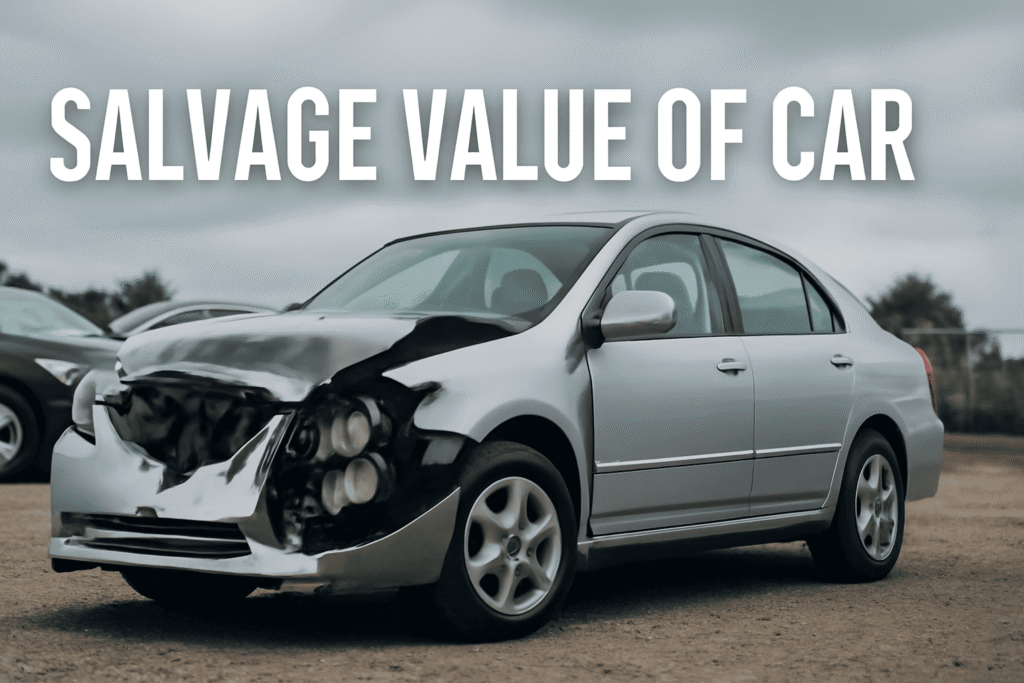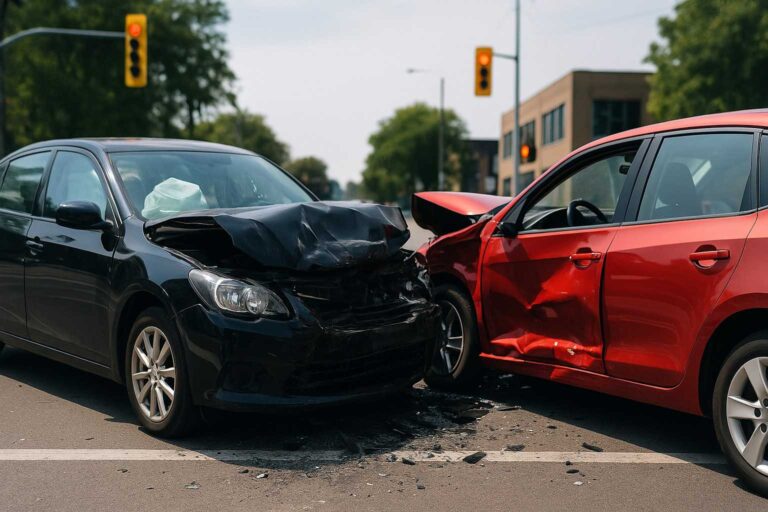Salvage Value of Car: What It Means and How It Affects You
When it comes to selling or insuring your car, the Salvage Value Of Car plays a crucial role in determining its worth after it has been significantly damaged or deemed a total loss. Salvage value refers to the estimated worth of a car at the end of its useful life, which can be crucial for both insurance purposes and when you’re deciding whether or not to repair a car.
Learn more by visiting our dedicated page CAR.
In simple terms, if your vehicle gets into an accident or deteriorates due to age, the salvage value is how much it’s likely worth after deducting repair costs. This amount is also what the insurance company will pay you if your car is deemed “totaled.”
Why is Salvage Value Important?
As a car owner, understanding the salvage value of your vehicle can be incredibly beneficial. Whether you’re getting a payout from insurance after an accident, or you’re considering selling a car that has been in a collision, knowing the salvage value can help you make informed decisions.

In the case of insurance, salvage value helps determine the payout you’ll receive when your car is totaled. If the costs to repair the car exceed the amount the insurance company thinks it’s worth, they’ll declare it a total loss and pay you the salvage value.
How is the Salvage Value of a Car Calculated?
The calculation of salvage value involves several factors, including:
Age of the Car:
Older cars typically have a lower salvage value.
Make and Model:
Luxury cars or those with a high demand may have a higher salvage value.
You seems to be more interested in Car and other vehicles related guide, you can check out our recent guide on:
Toddler Car Bed: The Perfect Sleep Solution for Your Little One | Comfortable & Fun
Condition of the Car:
A car that is in good working condition, even after an accident, may have a higher salvage value.
Repair Costs:
If it costs more to repair the car than its salvage value, the car is usually written off by the insurer.
Market Demand:
The demand for parts from the vehicle’s model also plays a role. Some cars have high salvage values because their parts are worth a lot.
In essence, calculating salvage value can be complicated, as it takes a number of variables into account. A professional appraiser or an insurance adjuster often calculates it based on the current market conditions.
Salvage Value and Insurance
When you purchase insurance for your car, you are essentially protecting it against total loss. This includes understanding what the salvage value of your car might be if it’s ever written off. Insurance companies typically have a process to assess whether a car is repairable or a total loss, based on its salvage value.
For instance, if the car is involved in an accident and the cost to repair it is greater than a certain percentage of its total value, the insurer will declare the car a total loss. At this point, they will pay out the salvage value of the car, which you can use to buy a new vehicle or repair the car, depending on what you choose.
Factors that Affect the Salvage Value of a Car
Several elements can influence the salvage value of a car, including:
Extent of Damage:
The severity of the accident or wear-and-tear on the vehicle is a key factor.
Insurance Coverage:
The type of insurance coverage you have (e.g., comprehensive or collision) can impact the payout.
Vehicle Age:
Newer cars may have a higher salvage value due to their lower depreciation rate.
Location:
In some areas, there may be a higher demand for specific types of vehicles or parts, which could increase the salvage value.
Wanna explore much more related to rings, electric bicycle, cars, and sports?
Visit us today at Ridenplay.online
Vehicle Type:
Certain cars (like luxury or high-demand models) tend to have higher salvage values because their parts can be resold for a good price.
Understanding how each of these factors impacts your vehicle’s salvage value can help you better prepare for the process of handling a totaled car.
Can You Sell a Car for Salvage Value?
Yes, it is possible to sell your car for its salvage value. If your car is totaled or severely damaged, you may choose to sell it directly to a salvage yard, junkyard, or scrapyard. These businesses often buy cars that are no longer roadworthy or in need of significant repair.
Many car owners opt to sell their vehicles for salvage because it’s a quick way to get some value out of a car that would otherwise cost more to repair. The process is simple: you contact a salvage yard, get a quote for your car’s value, and if you accept, they arrange for pickup.
How to Maximize the Salvage Value of Your Car
While the salvage value of a car is largely determined by factors outside your control, there are some things you can do to maximize its value:
Maintain Your Car Regularly:
Keeping up with regular maintenance, even if your car is getting old, can increase its value.
Keep Documentation:
Having records of repairs, service, and upkeep will make the car more appealing to potential buyers, including salvage yards.
Avoid Extensive Damage:
Try to prevent accidents or unnecessary wear and tear, as extensive damage will decrease the salvage value.
Conclusion
In conclusion, the salvage value of a car is an important factor to understand for both car owners and those in the automotive industry. Whether it’s for insurance purposes or when selling a totaled vehicle, knowing how salvage value is calculated and what influences it can help you make better decisions.
By maintaining your car and understanding its worth, you can ensure you receive the best possible value when it comes time to sell or insure your car.






